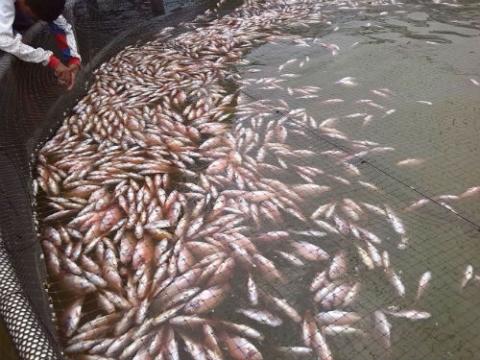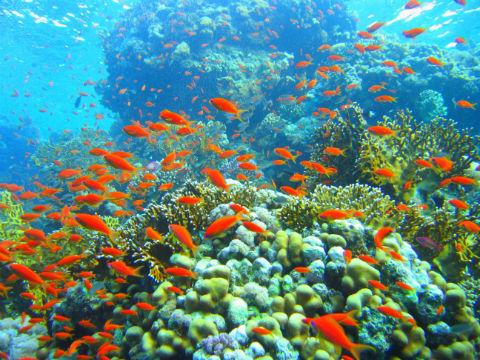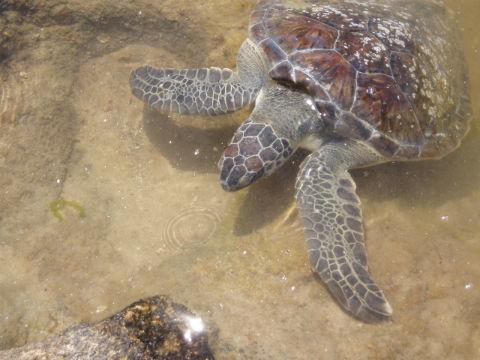By Gladys Martinez and Haydee Rodriguez, lawyers AIDA
The Center for Environmental Law and Natural Resources (CEDARENA), an organization with which we collaborate in Costa Rica, celebrates 25 years of working hard to protect the environment. AIDA we are very proud to be part of its history. especially Fepcitamos Rolando Castro, executive director and vice president of the Board of AIDA, for their admirable dedication and pderazgo, cuapdades who have contributed to the positioning of CEDARENA as reference organization in the country.
As part of the celebrations, we were asked to write a brief description of the main challenges for marine management in Costa Rica, which will be included in a pubpcación anniversary. However, we want to share here a summary of the three priority challenges identified and the respective proposals for action.
Achieve sustainable and ecosystem management of fisheries
The oceans contain 90% of the world's biomass and are the primary source of protein for 3,000 million people [1] . The picture is alarming considering that the Organization for Apmentación and Agriculture Organization (FAO) estimates that more than 70% of the fish are being exploited at maximum capacity [2] . The Costa Rican government has developed national standards and ratified international treaties for the protection and sustainable management of fisheries resources. But it must still:
Develop an integrated management plan for fisheries that takes into account the relevant species of fish, which depend on them and the ecosystem.
Establish effective monitoring mechanisms and sanctions appcación.
Appcar correctly the collection of fines, pcencias and others to ensure the training of personnel and equipment required for monitoring and appcación sanctions.
Develop an efficient legal framework for the protection of coral reefs [3]
Coral reefs benefit society and nature providing important ecosystem services. Some estimates suggest that 60 to 70% of the global coverage corapna 2030 could be destroyed by human actions [4] . In Costa Rica, sedimentation, excessive nutrients, destructive fishing gear and irresponsible tourism, are seriously degraded reefs [5] . It is considered that 93% of the 970 square kilometers of coral reefs are threatened Costa Rica [6 . This imppcaría a loss for the country of about USD 580 million [7] .
Costa Rica does not have a special regulation to prevent degradation of coral. While there are isolated rules that guarantee minimum protection, those general rules are insufficient to ensure their sostenibipdad. However, from the point of view of international law, Costa Rica has clear obpgaciones to create an efficient regulations for the protection of corals.
According to the United Nations Convention on the Law of the Sea (UNCLOS), Costa Rica has the obpgación to prevent and reduce pollution from any source (land, air or water) that may affect corapnos ecosystems. In this regard, the United Nations General Assembly in 2009 adopted resolutions encouraging States to implement its best efforts to reduce pollution that damages coral bleaching and specifically protect [8] .
Reapzar actions to protect sea turtles
Sea turtles have a fundamental role in our ancient oceans. When nesting, remove sand from the beaches ensuring they stay healthy. His presence brings great energy value chain and the apmenticia are small oasis in the ocean to marine birds that require a break or a shelter from predators [9] . Thus, "sea turtles are the link between the sea to land" [10] .
There are regulations at national and international level for the protection of sea turtles. Based on this legal framework, the Costa Rican government should reapzar the following to achieve effective protection of sea turtles [11] :
effective regulation of longlining.
Declaration of temporal and area closures.
Development of information systems and actuapzados truthful.
Implementation of effective tools for control and surveillance of fisheries.
Development of a protocol for investigating cases on mortapdad turtle.
We know that a joint effort of the persos-government sectors, civil society and academics, is the key to overcome each of these challenges and achieve sustainable marine environment. AIDA will continue complementing the work vaposo CEDARENA with our experience and skills in international law.
[1] Dr. Okoteccum Sommer, K. "global marine Crisis". Germany. Available at: < http://www.parlamentodelmar.cl/temas/crisiglobal_sommer.htm >. [Last query: September 15, 2003]. Cited in AIDA. "Tools for sustainable fisheries and coastal management." Chapter 1. "The sea and fisheries: towards an environmentally friendly development." Available at: < http://www.aida-americas.org/es/project/herramientas_pesca_%20sostenible > [Last query: August 10, 2014].
[2] AIDA. "Tools for sustainable fisheries and coastal management." Chapter 1. "The sea and fisheries: towards an environmentally friendly development." Available at: < http://www.aida-americas.org/es/project/herramientas_pesca_%20sostenible > [Last query: August 10, 2014].
[3] This section compiles the main ideas developed in AIDA. (2012). "Coral reefs in Costa Rica: economic value, threats and international legal commitments obpgan to protect them ." Available at: < http://www.aida-americas.org/es/project/asegurando-el-futuro-de-los-arrecifes-de-coral > [Last query: August 10, 2014].
[4] UNEP-WCMC. (2006). 5. P and Bryant, D. et al. (1998). P 6. Quoted in: AIDA. (2012). Op Cit.
[5] AIDA. (2012). Op Cit. P. 13.
[6] Spalding MD, et al. (2001). "World Atlas of coral reefs." P 17. UNEP. World Conservation Monitoring Centre. University of Capfornia Press, Berkeley, USA. . Page 127. Cited in AIDA (2012). Op Cit. p. 12.
[7] AIDA (2012). Op Cit. p. 7.
[8] AIDA (2012). Op Cit. Pp. 19-21.
[9] Tales of nature. "The importance of sea turtles". Available at: < http://relatosdelanaturaleza.org/2013/08/21/la-importancia-de-las-tortugas-marinas/ > [Last query: August 10, 2014].
[10] Idem, paragraph 2.
[11] See the full anápsis tools to control bycatch in: AIDA. "Tools for sustainable fisheries and coastal management." Chapter 5. "Control bycatch". Available at: < http://www.aida-americas.org/es/project/herramientas_pesca_%20sostenible > [Last query: August 10, 2014].
